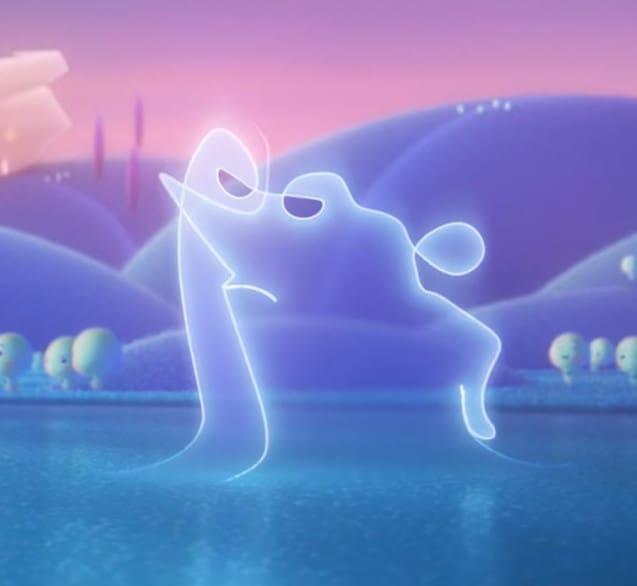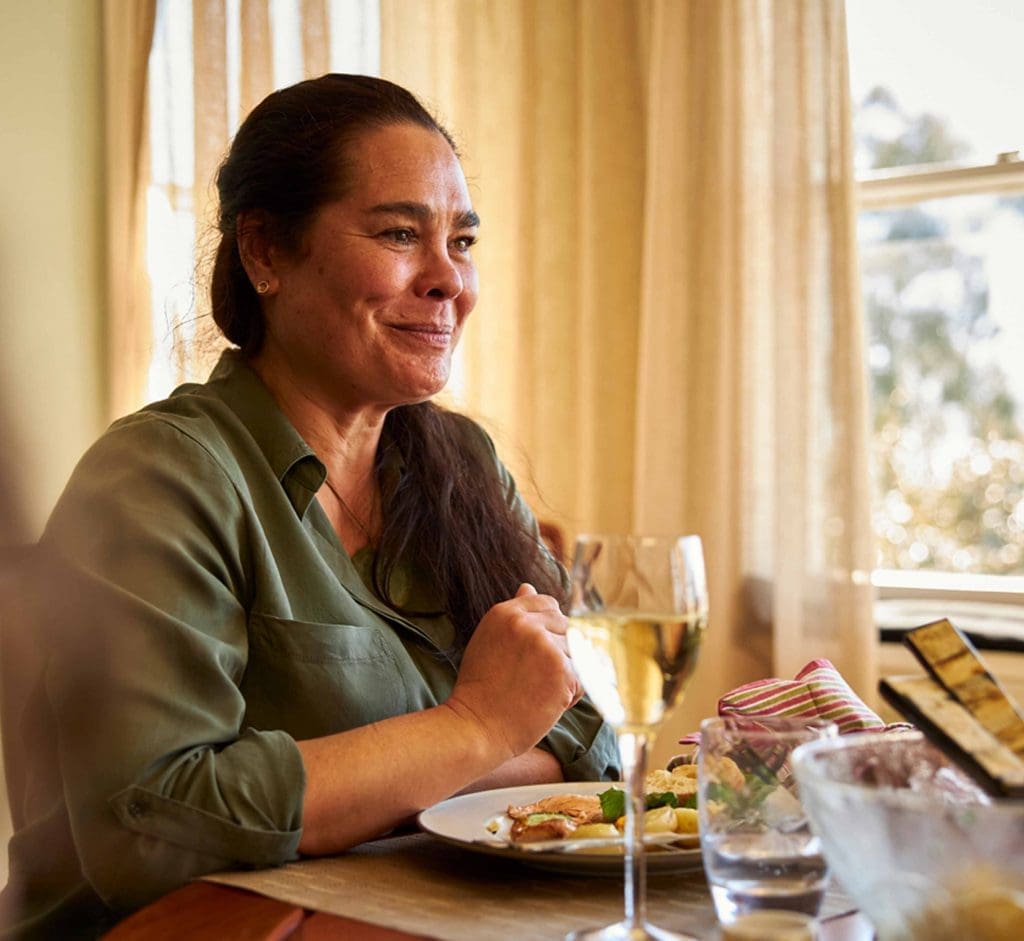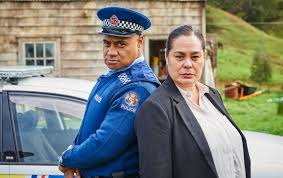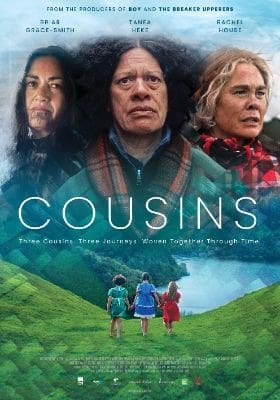A magpie that helps heal a family and an after-death experience that draws on the importance of daily gratitude; two very different films, both starring Rachel House, are both coming out at a very interesting time in our history.
Due to Covid-19 and the ever-changing dance of movie release dates, the Kiwi actor has two new releases that each carry big messages about what makes for a good life. In Penguin Bloom, she plays Gay, an empathetic kayaking instructor who helps Sam Bloom (played by Naomi Watts) find meaning in her life after a sudden accident paralyses her (check out our interview with the real-life Sam Bloom here). In Pixar’s Soul, she played the droll ‘soul’ accountant, in a movie very much from the Pixar wheelhouse of finding gratitude and meaning in everyday life.
“If all those things hadn’t happened, they would have been quite a distance apart,” Rachel says about the two releases. “It does feel like these two films have come out – and I’m sure there are more coming as well – that, coincidentally, speak to what we’ve been through here [in New Zealand] but also to what a lot of people are still going through elsewhere. Penguin Bloom is a true story about finding light in dark times, which is definitely something we can all relate to. And, I feel, equally about not taking things for granted, which Soul is also so much about.”

Rachel describes Soul as a remarkable film that “was a really healing story to watch,” and it certainly resonated with audiences, with a 96% approval rating on Rotten Tomatoes. But she chuckles that she’s “a bit biased” towards Penguin Bloom, because she got to know the real-life family that the story is based upon so well.
“They’re wonderful people and Sam is a remarkable human being – for her to be so generous with that story, to reach out to other people who may have gone through similar things. Sam really was on the verge. And then this beautiful little bird came into her life and everything changed.”


Knowing the people whom you’re portraying on film “definitely” adds more pressure to the process, Rachel says. “I didn’t want to let them down, because they had so generously shared their story in the first place and because it’s still very much a part of their lives. You really want to get it right for them, because they’re such a wonderful family.”
Both films, Rachel says, are about the importance of paying attention to daily life and she says it’s one of the biggest lessons the tumultuous events of 2020 have given her. “I feel like because we all stopped, we paid attention to what’s been going on for a really long time and we drew strength together to try and progress forward, to shift the way we feel about ourselves – particularly in terms of our power.”
The resurgence of the Black Lives Matter movement last June – following the brutal police murders of George Floyd and Breonna Taylor – felt like it had been a long time coming, Rachel says. “There weren’t so many distractions going on in our lives that we could look away, which I think people have been doing for many years.”
“What grew out of that movement was the BIPOC [Black, Indigenous, People of Colour] moment and as an indigenous woman, in this country, I felt empowered to not put up with that stuff anymore. And I know that’s certainly how many of my peers are feeling and are now acting upon – it’s affected us in our decisions, what we say yes to, what we are now unafraid to say no to… in terms of representation and in terms of the people who should not be telling our stories, who continue to tell our stories. As indigenous people, we’re not just fighting for equality, we’re also fighting for the survival of our culture.”
“So, I think we’ve come to a very interesting time in history and I don’t think I’ve felt this excited, ever, in terms of the outcomes of what can result from all this.”


It’s a hopeful statement but also one that shows how hard things have been and for how long, when you consider that Rachel is 49, is a beloved and international actor, and has been a vocal part of increasing indigenous representation, including voicing a role in the fully Te Reo Māori version of Moana and taking the first all Te Reo Māori Shakespeare version of the play Troilus and Cressida to The Globe Theatre in 2012. For this to feel like the most exciting time shows for just how long the landscape has needed to change.
“I mean, it was like waking up,” she says. “2020 felt like I woke up for the first time. That’s why I think I’m saying how excited I am – and I don’t want to diminish the horrific tragedies that have occurred, and are still occurring, for families around the world because of Covid. I don’t want to take away from that. But I do feel that we have put up with a lot, for a long time. And it was so wonderful to hear people speaking up and speaking out and saying, ‘That’s not okay.’ And it wasn’t just black or indigenous people or people of colour, it wasn’t just us who were speaking up this time. I look at someone like Chlöe Swarbrick and I think ‘what an extraordinary leader, we are so lucky to have someone like that in politics who really wants to change it all and breaks down how to do it.”
The momentum of the BLM movement – which has since been nominated for the Nobel Peace Prize – and subsequent BIPOC movement feels, Rachel says, like a big surge of power. “And now we just have to learn how to manage it. I mean, you can’t stay angry. I feel like I’ve been angry a lot in my life, particularly when it comes to race relations in this country and around the survival of our culture. I don’t want to be angry anymore.”


Again, the timing of art imitating life is working in Rachel’s – and our! – favour, with the upcoming April release of Cousins, the adaption of the famous Patricia Grace novel about three young wāhine who face being robbed of their cultural heritage in post WWII New Zealand. “I remember reading that story when I was a kid – probably before I should have – and I loved it; I wrote a book report on it. Ultimately, it’s a story about colonisation – you can dress it up a lot of ways but it’s really about the effects of colonisation on three wāhine and on all of their whānau. I feel very proud to be a part of it.”
Penguin Bloom is out now, visit here for session times

